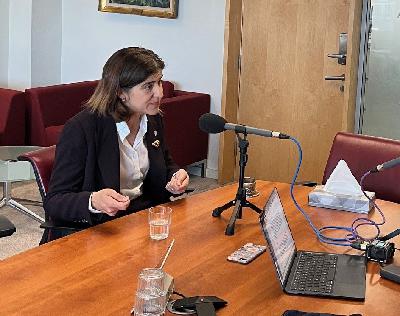Consumer protection?
Description
The Department for Business and Trade is currently reviewing the opt-out collective actions regime in competition law, a legal structure that enables consumers to claim compensation from corporations that are accused of abusing a dominant position in the marketplace. A recent example was the claim brought against Mastercard on behalf of up to 44 million consumers by the lawyer Walter Merricks, who discussed the outcome with me on A Lawyer Talks in May.
Launching a consultation two months ago, the government said:
We are committed to consumer protection and want to ensure that the regime has achieved, and continues to achieve, these objectives. This government is focused on economic growth; and a regime that is proportionate and focused on returns to consumers where they are due is good for growth and investment.
However, we are aware of the potential burden on business that increased exposure to litigation can present. Finding the right balance between achieving redress for consumers and limiting the burden on business is essential to ensure that businesses can operate with certainty, whilst providing a clear, cost-effective, route for consumers.
How should we calibrate the balance between corporations and consumers?
Representing the consumers’ side is the Collective Redress Lawyers Association. It wants to ensure that people harmed through anti-competitive behaviour can secure compensation through the courts.
Banging the drum for business is a group called Fair Civil Justice. It argues that collective actions in the courts should be a last resort, not the first port of call.
Most cases settle. But how much of the compensation should go to individual consumers and how much to the lawyers and the funders without whom these cases would never get off the ground?
Settling a class action originally valued at £14 billion earlier this year, Mastercard agreed to pay £200 million. But when the available balance is shared out, each consumer is expected to receive no more than £70 — and perhaps as little as £45.
On the latest episode of A Lawyer Talks, I discussed these issues with David Greene (pictured), senior partner at the law firm Edwin Coe and a co-president of the Collective Redress Lawyers Association. He offered a robust — but not unqualified — defence of the legal regime introduced 10 years ago.
My weekly podcast is a bonus for paying subscribers to A Lawyer Writes. Everyone else can hear a short taster by clicking the ► symbol above.


















